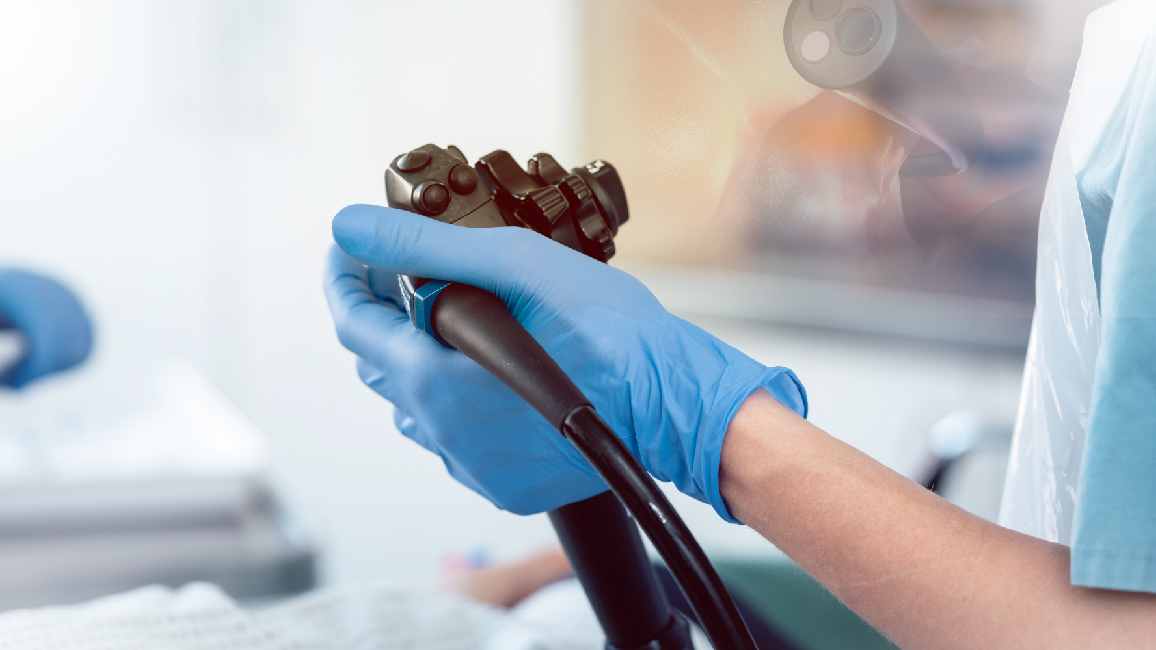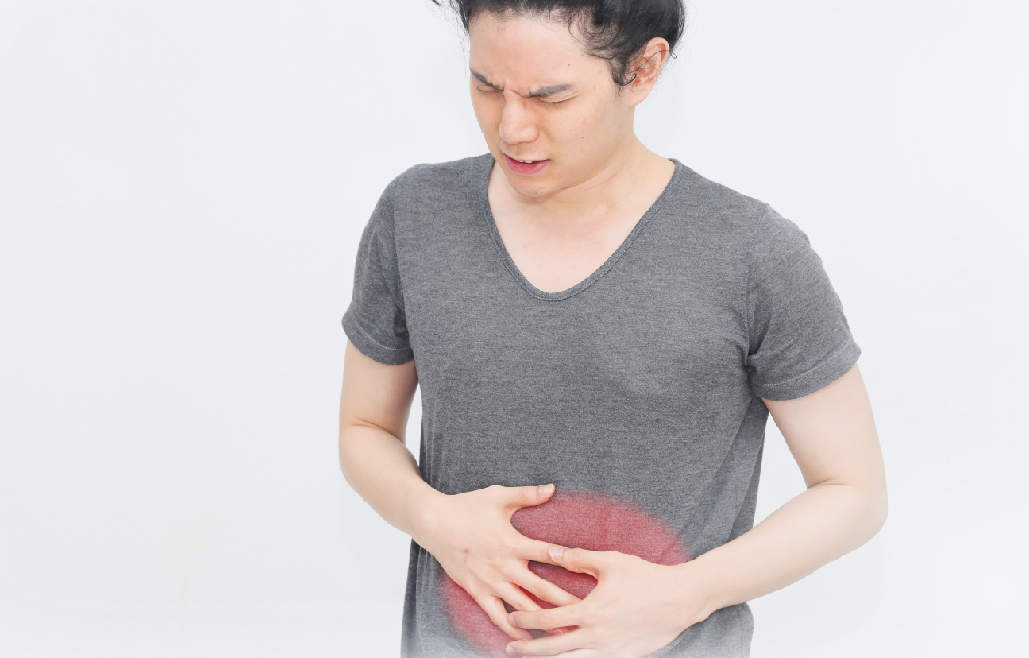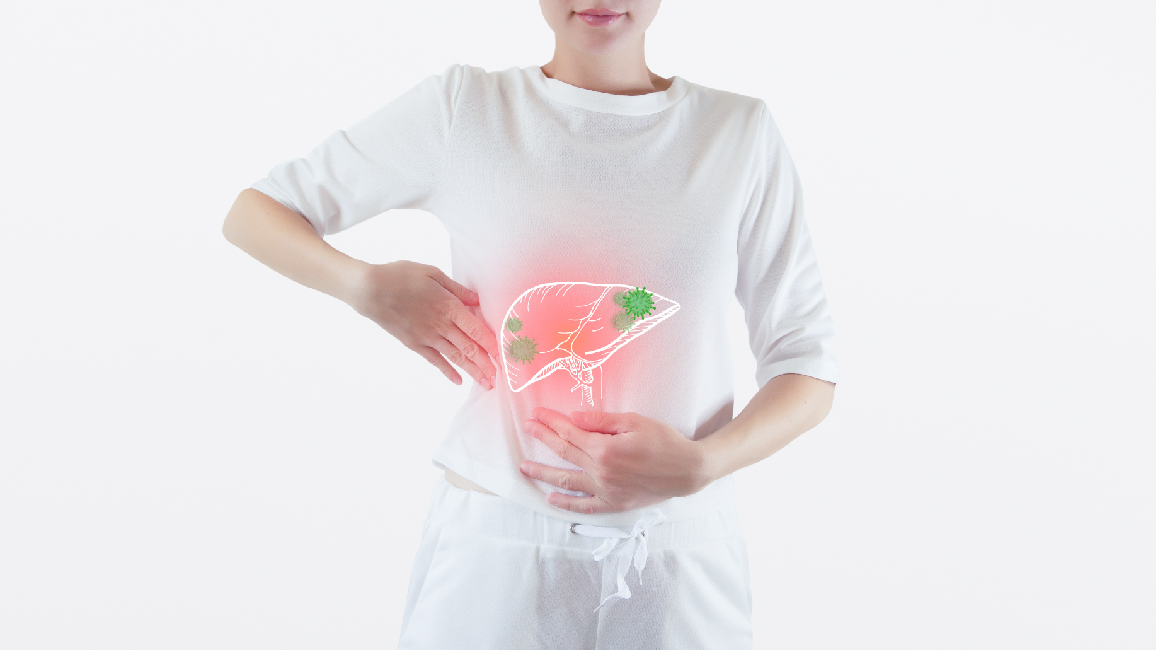Fatty Liver - Symptoms, Treatment
Center : Gastrointestinal and Liver Center

Choose to read by topic:
- What is Fatty Liver
- Types of Fatty Liver
- Fatty Liver Symptoms
- How is Fatty Liver Diagnosed
- Fatty Liver Treatment
- How to Prevent Fatty Liver
- Cirrhosis and Fatty Liver
- Fatty Liver, Liver Cancer and Cirrhosis Facts
- FAQ Related to Fatty Liver Disease
- Fatty Liver Conclusion
- Why must come to Nakornthon?
- Online Consultation
Fatty liver is a disease more common today, it is associated with many diseases known as metabolic diseases which is with the same group as obesity, diabetes, high cholesterol levels, high blood pressure known to cause similar symptoms caused by the same group of diseases, which is caused by eating too much fat, sugar, or starch and when the body does not use it up, this will accumulate as triglycerides in liver cells and this may increase swelling. The exact cause of liver inflammation is still not clear. Because some people with fatty liver, such as obese people who had ultrasound test found to have fatty liver but the liver tests still have normal values.
What is Fatty Liver
Fatty liver (steatosis) is a disease more common today, it is associated with many diseases known as metabolic diseases which is with the same group as obesity, diabetes, high cholesterol levels, high blood pressure known to cause similar symptoms caused by the same group of diseases, which is caused by eating too much fat, sugar, or starch and when the body does not use it up, this will accumulate as triglycerides in liver cells and this may increase swelling. The exact cause of liver inflammation is still not clear. Because some people with fatty liver, such as obese people who had ultrasound test found to have fatty liver but the liver tests still have normal values.
Most of the people with fatty liver, may not have any symptoms. It may have other symptoms, for example an enlarged liver, some cramping under the rib cage, but some symptoms are not common in some cases where the fatty liver is detected only until you come for a liver physical exam, such as other diseases. In addition to metabolic matters also caused by other factors such as liver disease caused by drinking alcohol. It starts over from the fatty liver as well or some medicines affect the liver as well. But most of them arise from unhealthy eating as the main cause.
What is liver’s functions
- Source of nutrients in the body
- The liver is responsible for producing bile and bile helps dissolve fats.
- Building energy for the body
- Destroy toxins in the body
Types of Fatty Liver
Nonalcoholic fatty liver disease (NAFLD)
Nonalcoholic Fatty liver disease (NAFLD) related to obesity especially belly fat, diabetes, hyperlipidemia, high blood pressure, other diseases that is associated with metabolic system, eating high calorie food frequently such as: flour, and sugar, hepatitis B and C, HIV. Side effects from certain medications, such as certain antiviral drugs, chemotherapy drugs, antihormonal drugs or steroid drugs
Alcohol-induced fatty liver disease
Alcohol-induced fatty liver disease most risk in people who drink a lot of alcohol regularly for a long time. Alcohol causes fatty liver, inflammation, and fibrosis in the liver; which can cause cirrhosis finally. The severity of the disease depends on quantity, type, period of drinking and chronic hepatitis from other causes.
Fatty Liver Symptoms
Fatty liver disease has no liver inflammation and may not have any symptoms, but if there is inflammation of the liver there will be cramping under the rib cage. Most are not inflammatory, because most of them are chronic, originally believed that this disease doesn't cause cirrhosis or liver cancer. But now we have more information gathered that this cause cirrhosis and in the long run, when you get older, 60-70 years, there is a risk of getting liver cancer as well. Therefore, it is important to be careful.
- weakness
- slight nausea with pain under right rib
- losing weight, losing appetite
- feeling numb, losing decision making ability, losing focus
- Changing color of urine and feces
- Jaundice: yellow skin, yellow eyes; because liver cannot function properly
Although the proportion is not very high compared with hepatitis B or C or alcohol-induced cirrhosis there is a greater chance that it can be found, but because the data is not enough, there is no clear number, but you can find more, most of which will find that having liver cancer without any cause and it's not from hepatitis B or Hepatitis C. The obvious solution is to adjust the eating behavior. Refrain from food containing sweets. Abstain from food that are high in fat, starch, and more importantly, control your weight, because most symptoms can be seen in obese people.
How is Fatty Liver Diagnosed
- Blood test to check ALT, AST, ALP
- Abdominal ultrasound
- Fibroscan; is a medical technology that use in examining the fat, fibrosis in the liver and check cirrhosis painlessly.
Fatty Liver Treatment
If you are diagnosed with fatty liver, the doctor will consider giving medicine depending on your condition; and will suggest changing some behaviors to refrain or reduce from risk factors such as:
- Refrain from drinking alcohol
- Exercise at least 150-200 minutes/weeks
- Control your diet: eat high nutrition, less fat, high fiber, and low calories food
- If you have BMI more than 25 or have belly fat, you must control your diet and reduce your weight to be in normal rate or at least 7-10% from your present weight within 1 year.
- If you have diabetes or hyperlipidemia, you should control your diet, exercise, and take medicine according to your doctor’s describe to effectively control your disease.
The heavier we weigh shows we consume too much starchy and fatty food. This is one indicator that can be identified and study suggests that if we can lose weight, the liver will work better. Therefore, losing weight will help in the sense that the body should engaged in more physical activity, people who sit down and do office work rarely exert anything. These people are at higher risk of having fatty liver. If working in the office may require additional activities such as walking up and down the stairs. Without using an elevator, it will help as it exerts more effort than sitting idle.
In which the important part is to control your diet, for most people with hepatitis and fatty liver disease. Exercise reduces the liver value, and shows better ultrasound results of the liver where in some people get better. After having fatty liver disease, you will have to take care of the body all the time, because if you go back to consuming the same food and the same lifestyle, this may cause the symptoms to come back, there is no such medication that is known to be effective in treating fatty liver equivalent to adjusting the behavior of the person.

How to Prevent Fatty Liver
- In people who are overweight (BMI over 25) should exercise and control diet to lose weight within the criteria.
- Exercise regularly, control your diet, eat a nutritious diet that is low in fat, high in fiber, and low in energy.
- Patients with underlying diseases such as diabetes or hyperlipidemia should control diet exercise and taking medication prescribed by your doctor to control the disease effectively
- Avoid taking unnecessary medications, as well as dietary supplements that may have side effects on the liver.
- Avoid drinking alcohol.
- Annual health check
Cirrhosis and Fatty Liver
Besides the issue of fatty liver, there are other reasons that can cause liver cirrhosis. Which is more common with hepatitis B, Hepatitis C virus, and alcohol or alcohol abuse, it is the main cause of cirrhosis. When cirrhosis occurs it causes a high incidence of liver cancer. In which people with cirrhosis will not have any symptoms at first if the liver hasn't been damaged so much, this is because the liver is the largest organ in the body. Therefore, liver cirrhosis is a chronic inflammation until there is fibrosis in the liver, which fibrosis will make the liver work harder. Causing the liver cells to die then form a membrane then liver function worsens, and if more than 80% of the liver is lost, symptoms begin and can be felt. Because the liver is a large organ, therefore, the damage must be big enough to see symptoms.
For people with symptoms of liver cirrhosis such as ascites, fatigue, yellow eyes, jaundice, thin belly, some men may have hair loss. A physical examination will find that the eyes are yellow, with yellow fingertips, enlarged veins on the chest or shoulder like a spider's web, Small capillaries some people have fluid accumulation in their stomachs. Which is likely to be easily infected and some people have complications such as vomiting blood.
If you want to determine if you have liver cirrhosis. You must check whether you are a high-risk patient for cirrhosis or not, tests such as fatty liver, hepatitis B, Hepatitis C, or do you drink alcohol often? most people who have new symptoms will not feel it, most symptoms will be detected or can be identified from the annual health check, such as abnormal liver values, detecting the presence of hepatitis B, hepatitis C or fatty liver is needed in this group of patients, it may develop into cirrhosis. But if you belong to the low-risk group of these diseases, you may need to come to check the liver or perform ultrasound periodically.
Currently, there are clearer tests than Ultrasound, it is called a fibroscan, a tool that has been used for quite some time. In the past few years, this is a way to check on cirrhosis and can help determine fatty liver as well, But before, making a diagnosis for hepatitis or fatty liver, in the past, using a needle the pathologist will pierce the liver to gather samples for liver biopsy, to determine how severe the cirrhosis is. Now because liver biopsies are at risk of complications, it has been replaced with fibroscan, which does not cause any complications and no need to perforate the liver, which makes it safer and get reliable results.
Considered as one of the tools to be used to diagnose cirrhosis and fatty liver, and if cirrhosis has been detected, will there be any other treatment? There is only one treatment method: liver transplant. Other treatments will not be effective if it is beyond the point of recovery of liver recovery. Medications used is just supportive and does not make the liver better, to prevent complications such as dropsy, vomiting blood, jaundice, infection, but the chances of the liver recovering 100 percent is not possible if the liver has cirrhosis. The only chance is liver transplant.
If the liver is not hard but is an early chronic inflammation, you must try to avoid risk factors such as having to stop drinking alcohol, get more exercise, and must control your food intake, with hepatitis B Hepatitis C, we must see if there is any indication that the medication is working or not. Currently, there are drugs used in the treatment for Hepatitis B and Hepatitis C, especially Hepatitis C virus there is a drug that can be used to treat it completely. If there is a risk, it must be taken to prevent cirrhosis.
Fatty Liver, Liver Cancer and Cirrhosis Facts
- Fatty liver is the same disease like obesity, diabetes, high blood cholesterol. High blood pressure
- A metabolic disease called eating disorders syndrome.
- Currently, no drug works well in the treatment of fatty liver which is equal to behavior adjustment
- The risk of cirrhosis. which are frequently Hepatitis B Hepatitis C and alcohol consumption
- If there is a risk of cirrhosis, the patient must come to check the liver periodically to solve problems from the beginning.
- If hepatitis, you must try to avoid all risk factors. Having to stop drinking alcohol, exercise, diet
FAQ Related to Fatty Liver Disease
How long will fatty liver heal?
The time of treatment will depend on the severity and stage of disease. The faster fatty liver is found, the more effective the treatment will be.
Is fatty liver disease fatal?
Fatty liver if not treated, can causes chronic infection or kill liver cells which can lead to liver fibrosis the number one cause of cirrhosis and liver cancer which can affect your quality of life and can is fatal.
What is a good diet for fatty liver?
If you have fatty liver, you should eat low sugar, low carbohydrate, and low fat food such as:
- Unsaturated fatty acids: Rice bran oil, Soybean oil, Olive oil, Corn oil sunflower seed oil
- Good protein with low fat: fish, chicken chest, white egg, non skin non fat pork and meat
- Brown Rice and Vegetables such as: Radish, carrot, cauliflower, eggplant, onion, Cantonese kale
Fatty Liver Conclusion
If you want to prevent fatty liver, it’s important to avoid factors that make your liver work harder. You should have annual health check up regularly, also should have Fibroscan to check liver, to maintain a healthy liver as long as possible, other systems in the body will get good results as well.
Why choose Nakornthon Hospital?
Gastrointestinal and Liver Center at Nakornthon Hospital is a specialized medical center which provide the best treatment for Intestinal and liver diseases and provides the best services to a patient. We provide a professional team to give you the accurate diagnosis and treatment on the fatty liver and the liver fibrosis along with the operating room for the examination.
Online Consultation
Article of Gastrointestinal and Liver Center





